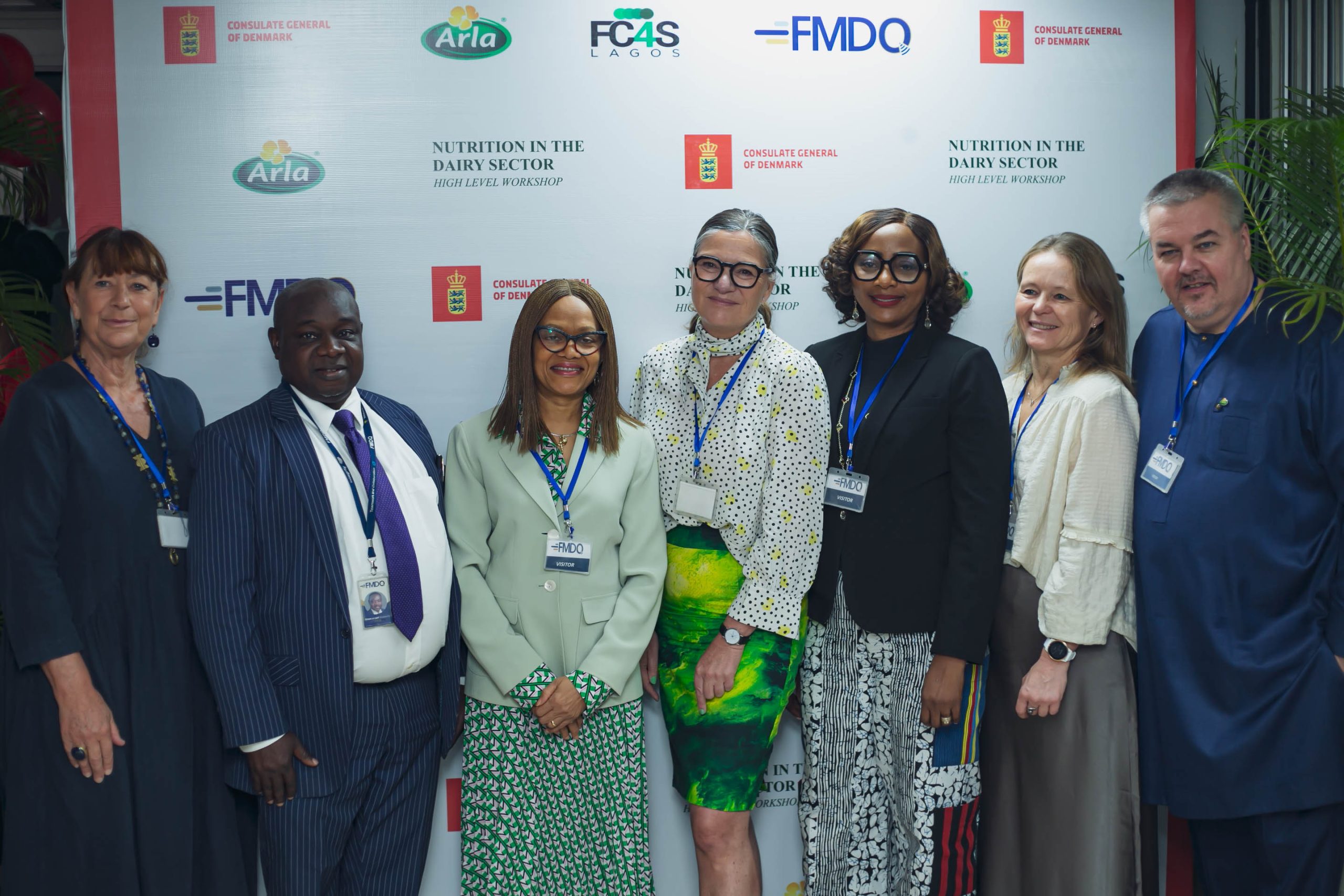…engage industry stakeholders to strengthen the dairy sector’s contribution to national nutrition goals
Arla Foods, the farmer-owned dairy co-operative, in partnership with The Consulate General of Denmark, and the Financial Centre for Sustainability (FC4S), recently hosted a high level workshop that brought together key stakeholders from the dairy value chain—including government officials, regulators, farmers, nutrition experts, policymakers, and industry leaders—to discuss strategies for improving dairy nutrition, sustainability, and access.
Titled ‘Nutrition in the Dairy Sector’, the workshop addressed current challenges and opportunities in improving nutrition through Nigeria’s dairy sector. Aimed at bringing key industry stakeholders together to assess the current state of nutrition, the workshop highlighted the importance in understanding the role of dairy products in the national diet and explored strategies for improving dairy nutrition through innovative practices. Furthermore ways to promote sustainable dairy production practices such as improved systems and processes along the value chain were discussed and policy and regulatory frameworks required for success were identified and recommended.
The workshop included participation from key regulators including the National Agency for Food and Drug Administration and Control (NAFDAC). Dr. Eva Edwards, Director Food Safety and Applied Nutrition from NAFDAC stated that collaboration between the industry and regulators was needed to drive the dairy sector forward, suggesting platforms and opportunities for collaboration as a means of creating more consumer education around the importance of dairy in nutrition.
Other key regulators and stakeholders included Standards Organization of Nigeria (SON), Global Alliance for Improved Nutrition (GAIN), Sahel Consulting, Helen Keller, Milk Value chain Foundation and amongst others offering attendees an opportunity to engage in critical dialogue on this topic. Participants took part in a series of breakout sessions focused on key areas of the dairy sector, including Nutrition and Public Health, Improving Dairy Quality and Safety, Sustainability in Dairy Production, Innovation and Technology in Dairy Processing, and Policy, Economics, and Access. These sessions allowed stakeholders to deliberate, collaborate and share insights on how to drive growth and overcome barriers within the sector.
“As we look to the future, I am inspired by the collective vision and commitment I’ve seen from the dairy industry to address critical issues around nutrition and access,” said Peder Pedersen, Managing Director, Arla Foods Nigeria. “At Arla, we firmly believe that everyone deserves access to high-quality, nutritious dairy products, and that this requires us all to work together—not just as industry members or competitors, but as partners with a shared responsibility for the health and well-being of the Nigerian people”
“Our gathering today underscores the importance of collaboration and knowledge, sharing across the borders and bringing together expertise, insights and resources that can drive the positive change everybody is looking for. The challenges we face in nutrition and sustainable agriculture require a shared commitment, especially when it comes to developing innovative solutions that can improve food security, health and livelihoods in general. This is an area where Denmark and Nigeria can achieve great things together,” said Her Excellency Ms. Jette Bjerrum, the Danish Consul General.
Arla Foods plans to collaborate with more dairy industry leaders on similar workshops in future to further drive the nutrition agenda in Nigeria together.
About Arla Foods
Arla Foods is a dairy company with 7900 farm owners in seven Northern European countries. Its philosophy of producing natural, healthy, and high-quality dairy products dates back to the 1880s when dairy farmers in Denmark and Sweden joined forces with one common goal: to create and provide the best dairy products.
Arla Foods, Consulate General of Denmark, FC4S deliver workshop on nutrition in the Dairy Sector



